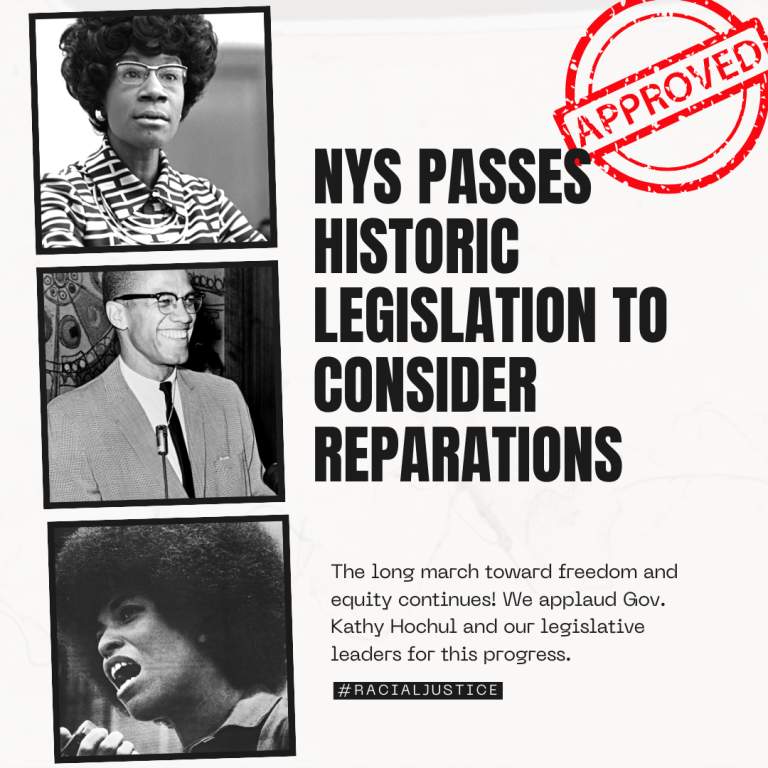
Open Buffalo Applauds Reparations Progress in New York
Published December 20, 2023
By Dr. Kush K. Bhardwaj
Director of Racial Equity and Justice
On December 19, New York Governor Kathy Hochul signed historic racial justice legislation, creating a community commission to consider reparations for slavery. The new law authorizes the creation of a community commission that will study the history of slavery in New York state and what reparations could look like. Open Buffalo commends Gov. Hochul for leading New York in what some consider a controversial direction. New York is now the third state to examine reparations as a restorative measure, behind California and Illinois.
Open Buffalo has worked in solidarity with activists and elders throughout the community, including Karima Amin, George BaBa Eng, Ras Jomo Akono, and Samuel Radford. We have helped to amplify the work of our elders, especially in public education, by creating forums and providing spaces for exploration and discourse regarding the underpinnings of the disparities and challenges facing Black Buffalo. We show love and gratitude for our elected leaders, such as NYS Assembly Majority Leader Crystal Peoples-Stokes, who have dedicated their lives fighting for racial justice.
Though Slavery was abolished in New York in 1827 and officially across the United States in 1863, it was followed by racial segregation practices like Jim Crow and redlining — denying loans to people based on race and neighborhoods, impacting generations. It is critical to recognize the crime of slavery in its magnitude and scope. It is equally important to scrutinize the impact of slavery on people of African descent.
In the state of New York, there is concrete evidence of the long-term psychic damage inflicted upon the Black community, including the subsequent effects on housing discrimination, biased policing, income inequality and mass incarceration of African Americans.
"You can see the unreckoned-with impacts of slavery in things such as Black poverty, Black maternal mortality," said Nicole Carty, executive director of the group Get Free.
Activists like Carty said the new law was a long time coming. She helped advocate for the bill, which was sponsored by Assemblywoman Michaelle Solages, after the racially motivated Buffalo mass shooting.
"We saw that monster come into the community and kill [10] Black New Yorkers," Solages said.
It is far too early to tell what type of restitution, cash or otherwise, the commission in New York will recommend for descendants of enslaved people, or even if it will make such a recommendation. As the Director of Racial Equity and Justice at Open Buffalo, I am in favor of restitution that develops the infrastructure of predominantly Black Communities. Black consumers’ collective economic power is set to expand dramatically, from about $910 billion in consumption in 2019 to $1.7 trillion (in nominal dollars) in 2030.
It is imperative that any possible funds allocated to descendants of enslaved people circulate within the Black community. Initiatives which enhance racial, economic, and ecological justice will improve the community collectively. Funds which directly address or combat institutionalized racism may change the trajectory of generations of African American New Yorkers, providing opportunities and access to resources which would develop disinvested communities. This is key, rather than simply creating an economic boom which would benefit non-Black owned businesses or corporations, as has been the case for centuries.